Preamble
COVID-19 has raised concerns about the continued reliance on global networks for sustaining local economies, particularly its future resiliency.
A key response is to develop economic activities, producing high-value goods and services for exports as well as meeting domestic demand. This raises several questions: (1) What is the scale in which such production forms can exist effectively to fuel self-reliant economies? (2) What physical planning is required for the urban environment to accommodate such production forms?
A future city plan is unlikely to take current forms in view of high density/high occupancy vulnerability. The pandemic safety restrictions have resulted in adaptations to new modes of schooling, collaboration, production, transaction and recreation. Boundaries of home, workplace, school and recreation will change and affect the granularity of a city Masterplan. Of concern is the impact on social interaction when the scale of recreational spaces diminishes with reduced occupancy. Of importance are new urban spaces that operate in dispersed occupancies without diminishing vibrancy and connectivity.
Filter City
This is one of few group investigations into a pandemic future in the peri-urban context of Woodlands North where the HSR will receive 2000 commuters a day from Malaysia. Because screening is a norm, the containment of at-risk commuters suggests hybrid transport terminal and quarantine/hotel facilities and this starts a chain reaction of rethinking SHN WFH and Lockdowns.
A new neighbourhood is conceived to enable life, creative production and recreation without the claustrophobic impositions of incumbent forms of dwellings, quarantines and workplaces. Investigations into how small a self-reliant neighbourhood can subsist without disruption to energy, water and food supply and recover-in-place resulted in novel hybrid urban prototypes planned for containment and recovery.
“The thesis would not have been possible without a group of five committed individuals in a memorable year.” – Professor Joseph Lim
The Filter City Masterplan features the combined efforts of 5 thesis students. Head on to their individual web pages to find out more about their respective areas of focus!
Food Production by Azriel Yeo, Retail & Manufacturing by Bernie Ang, Workplace by Justin Sim, Medical & Quarantine by Max Lee, Housing by Sherry Goh
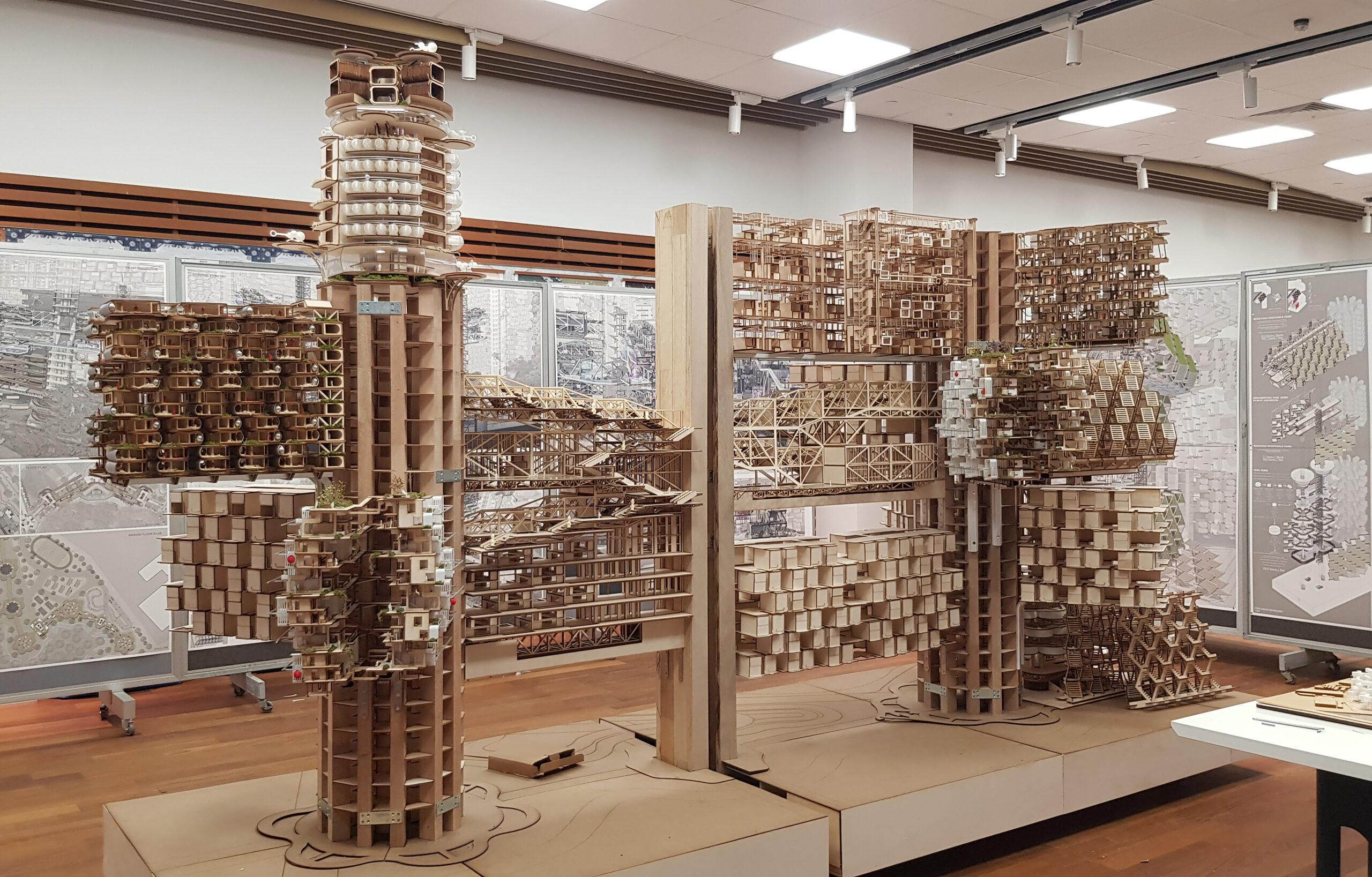
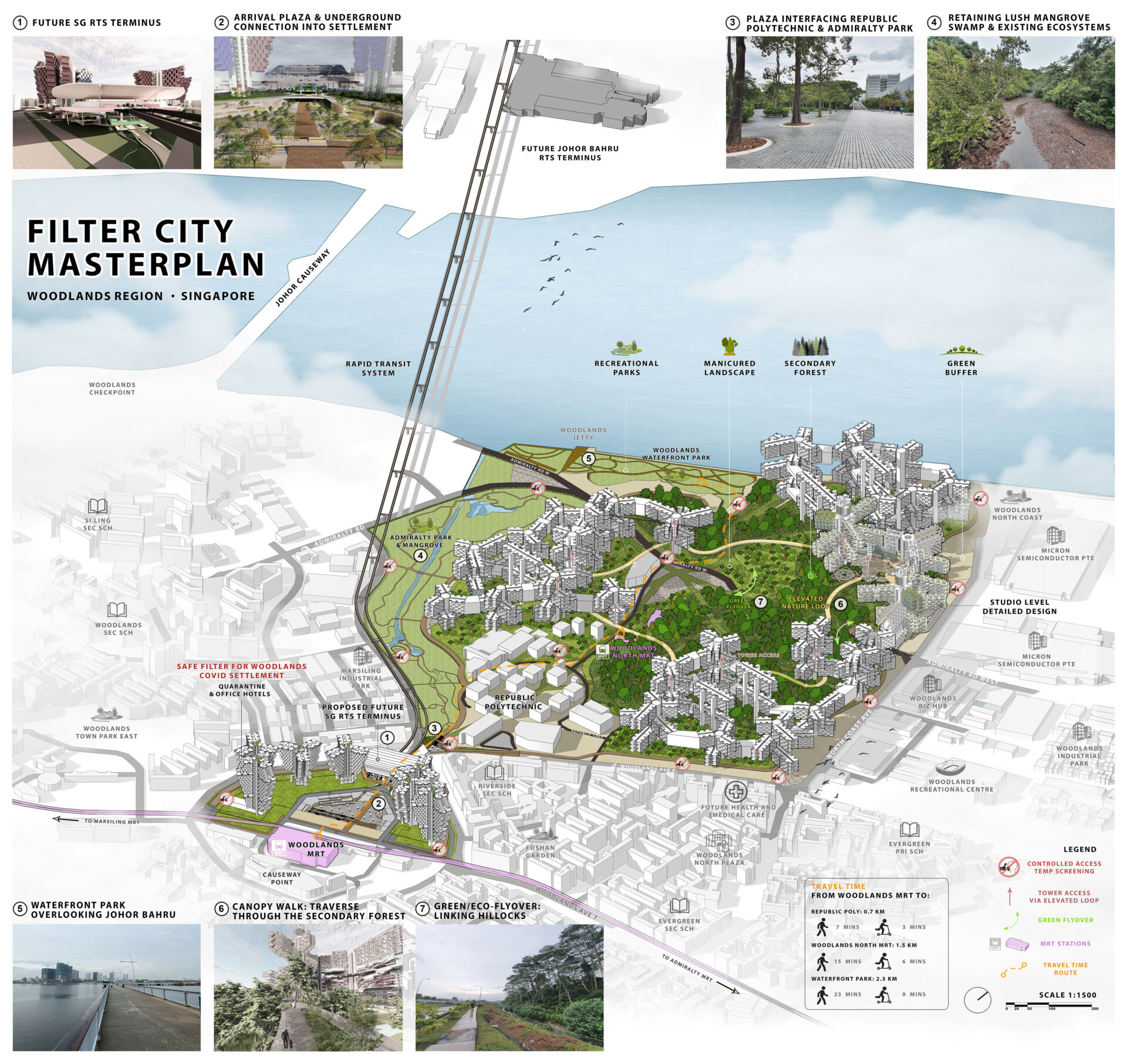
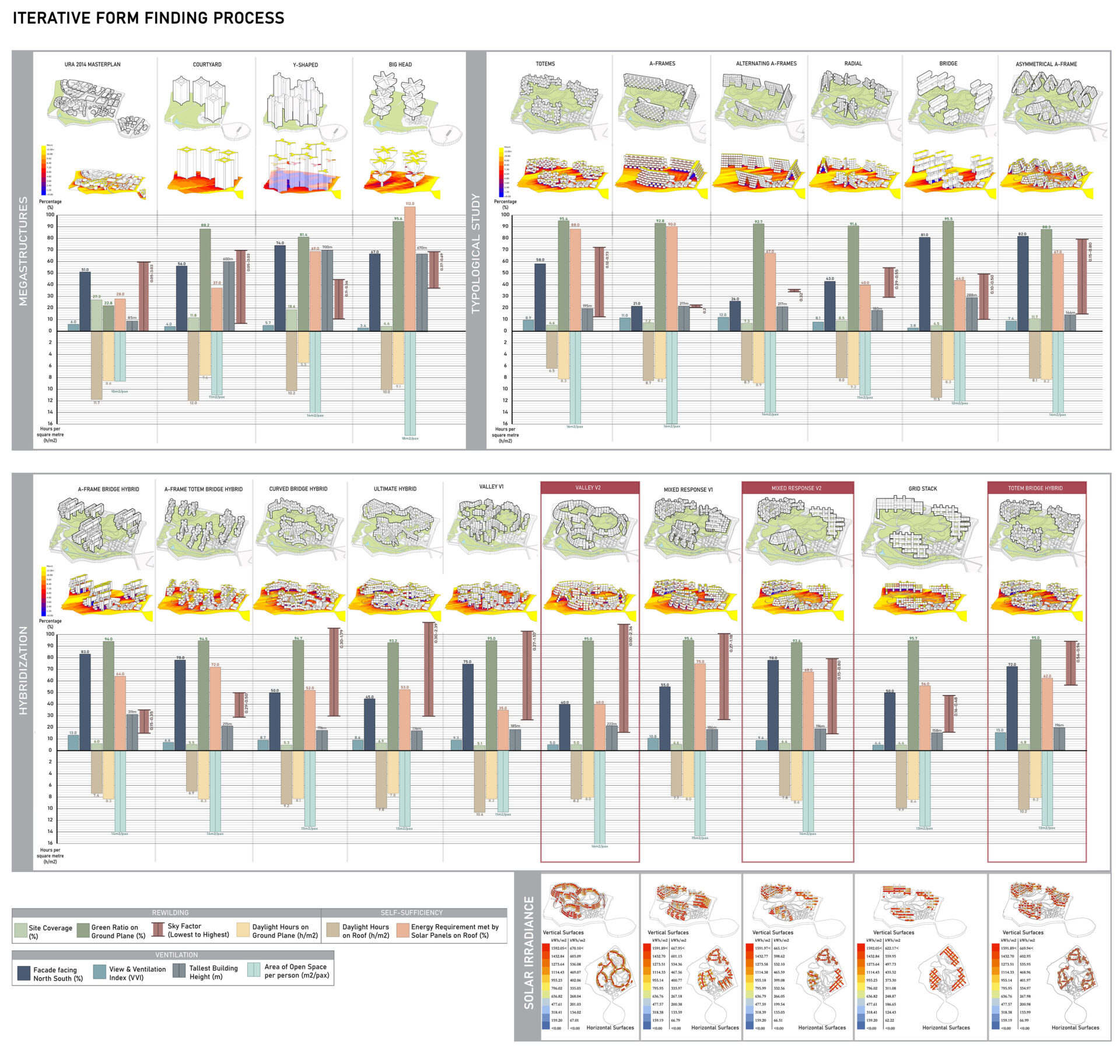
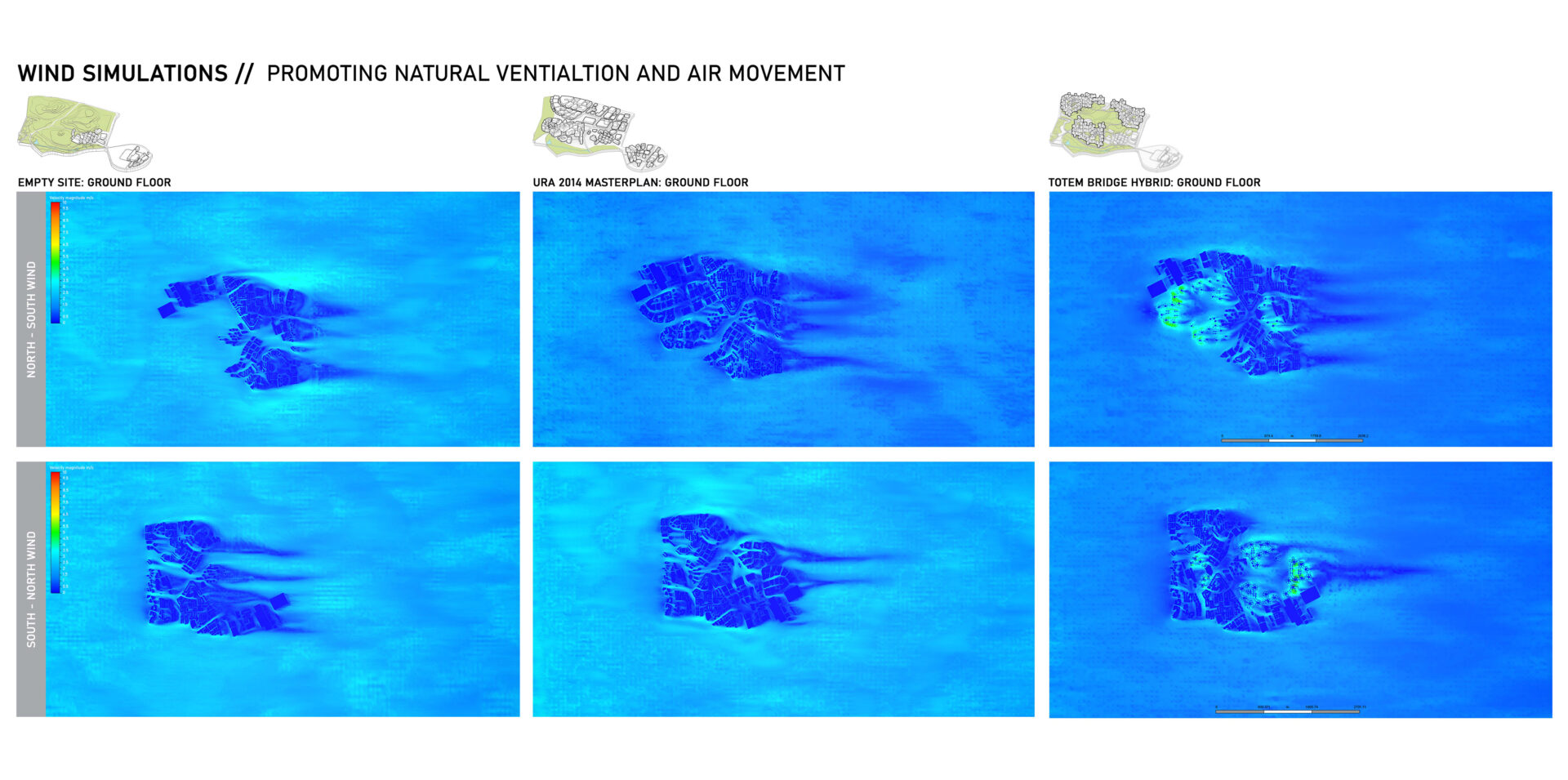
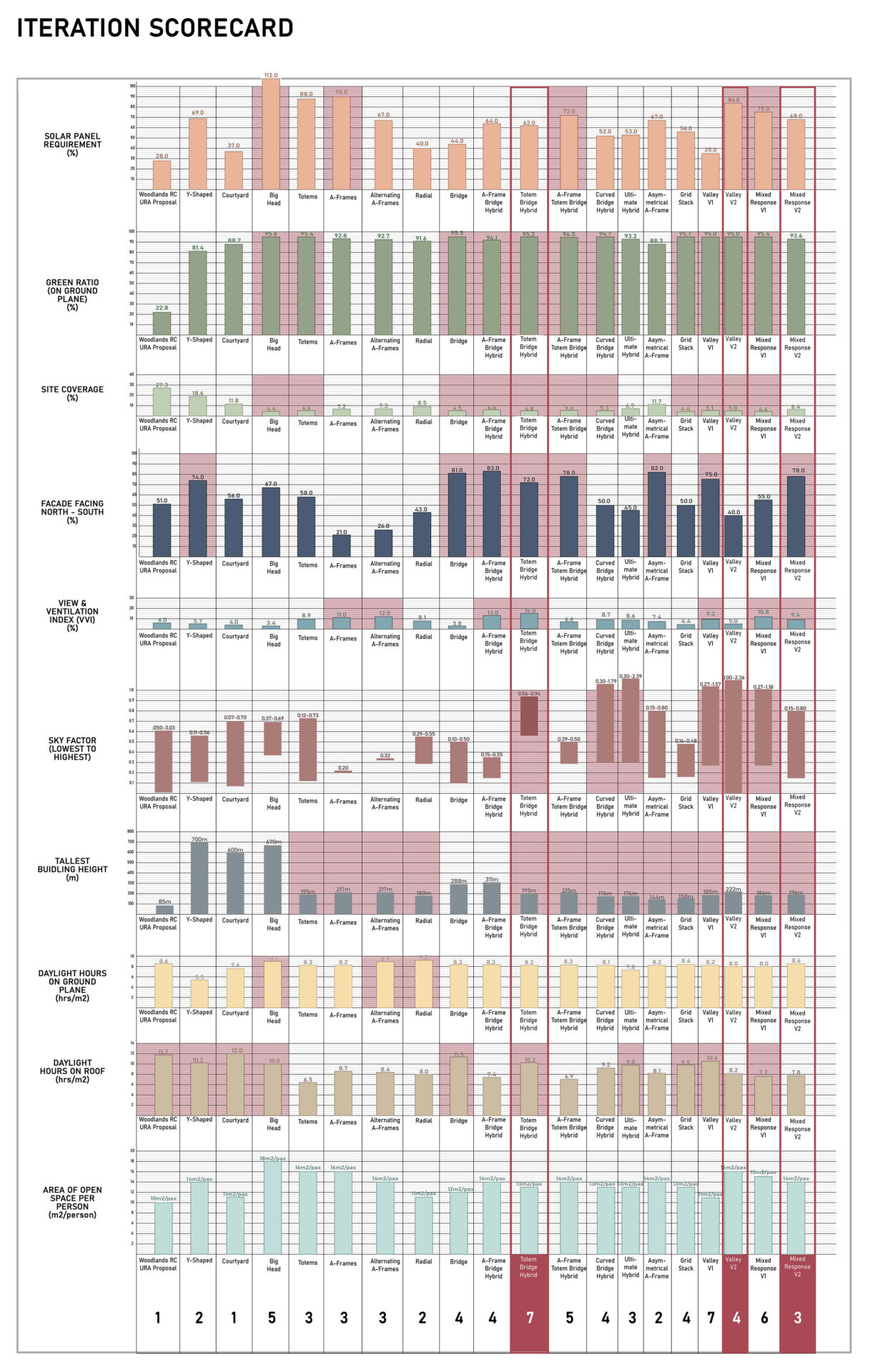
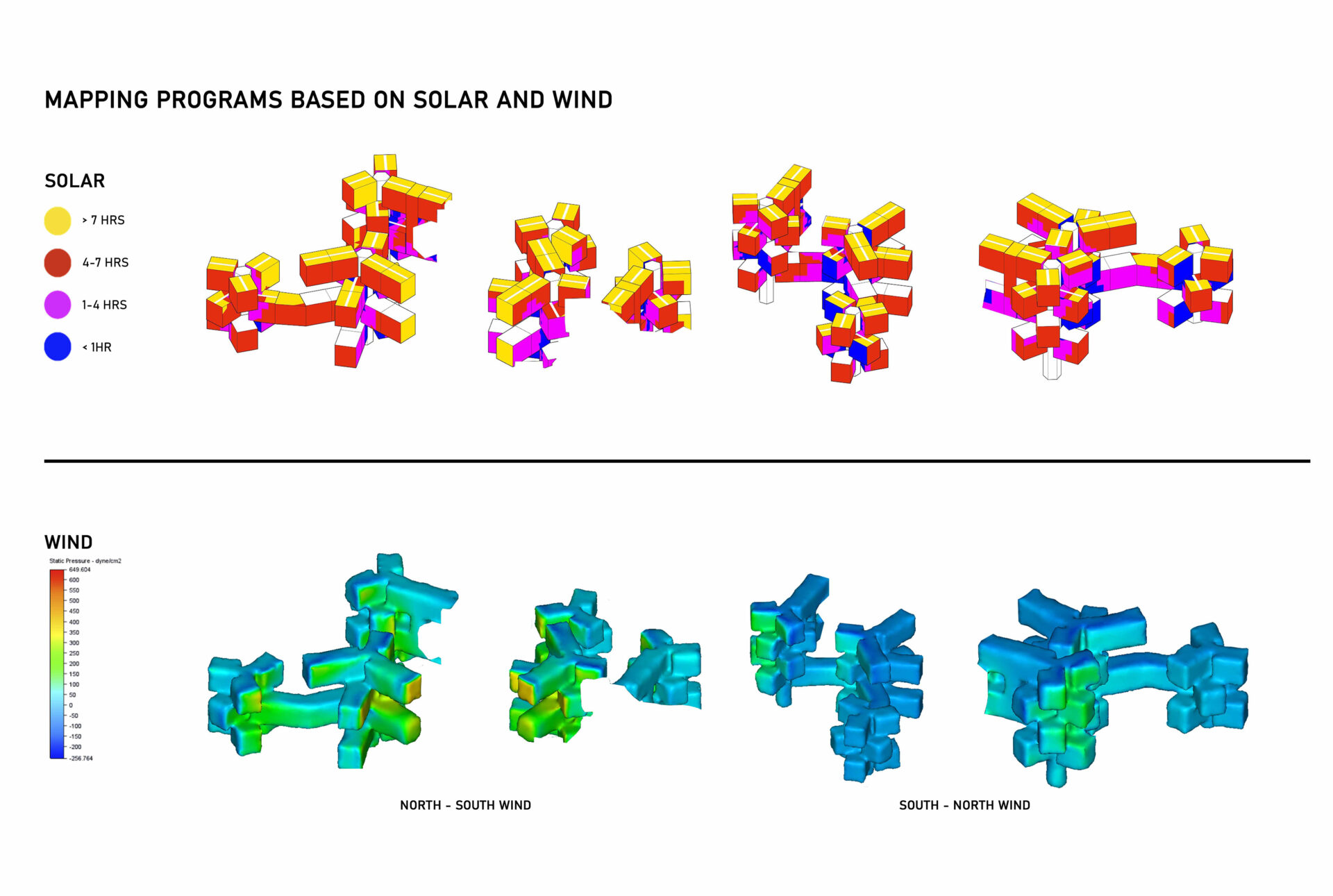
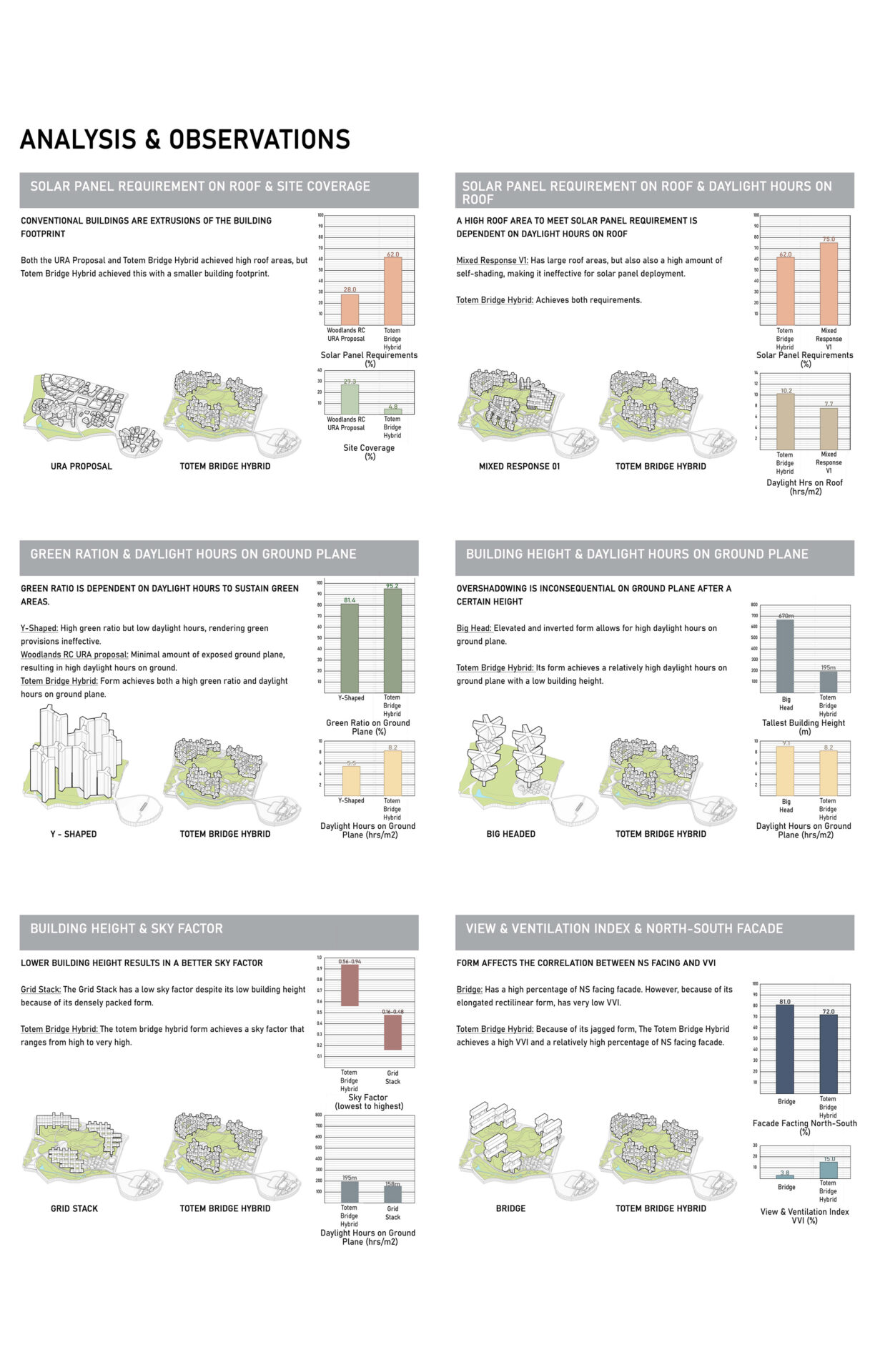
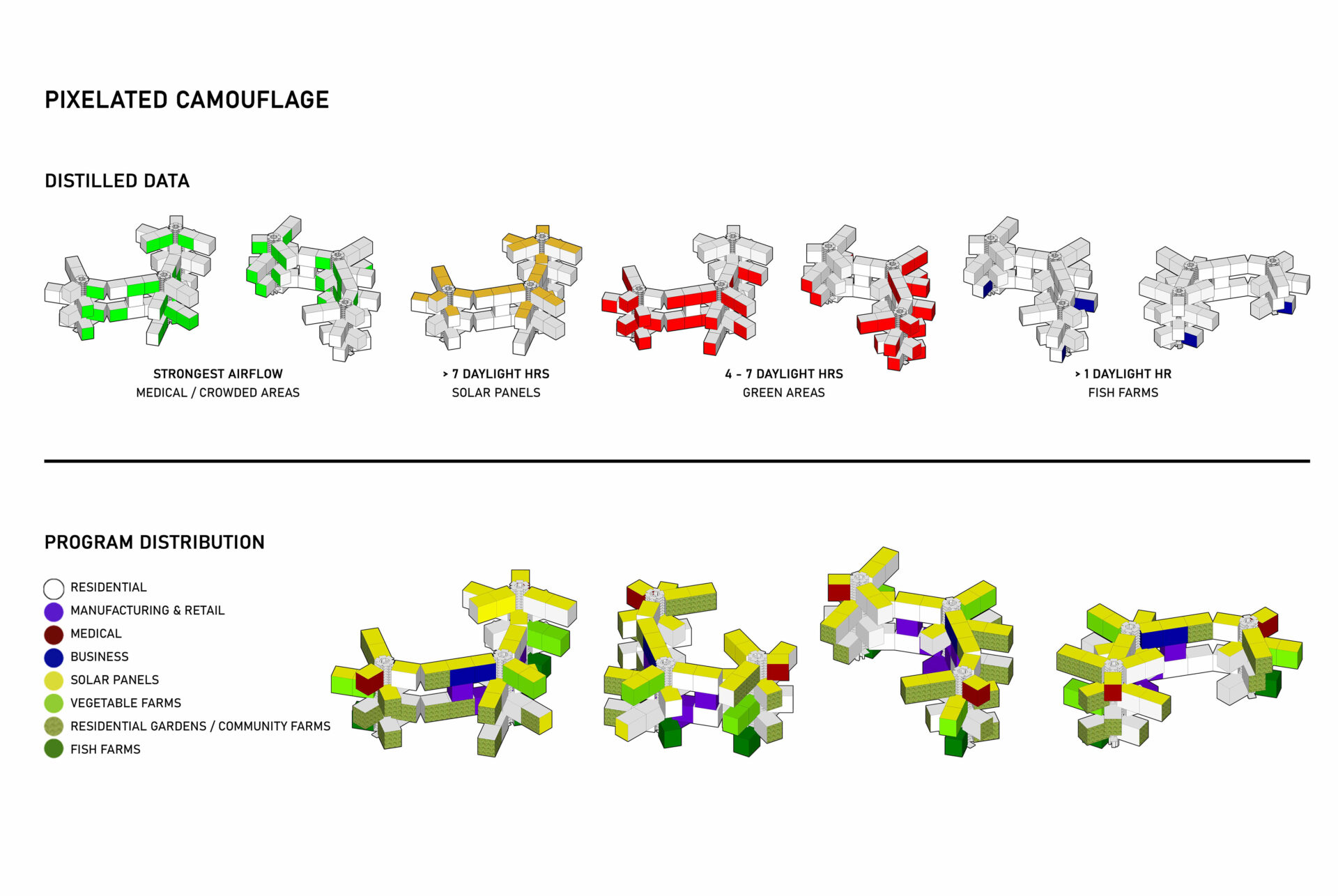
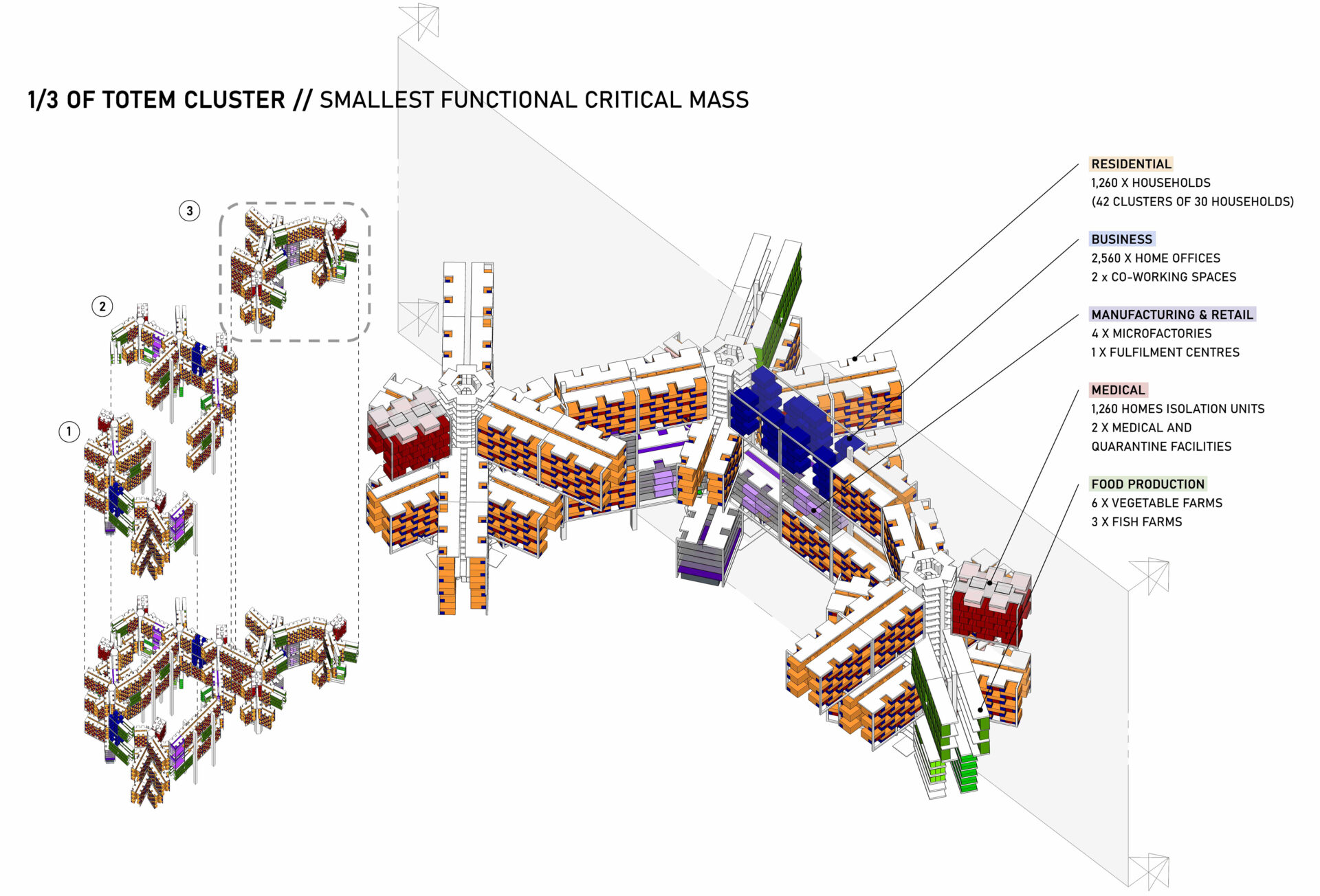
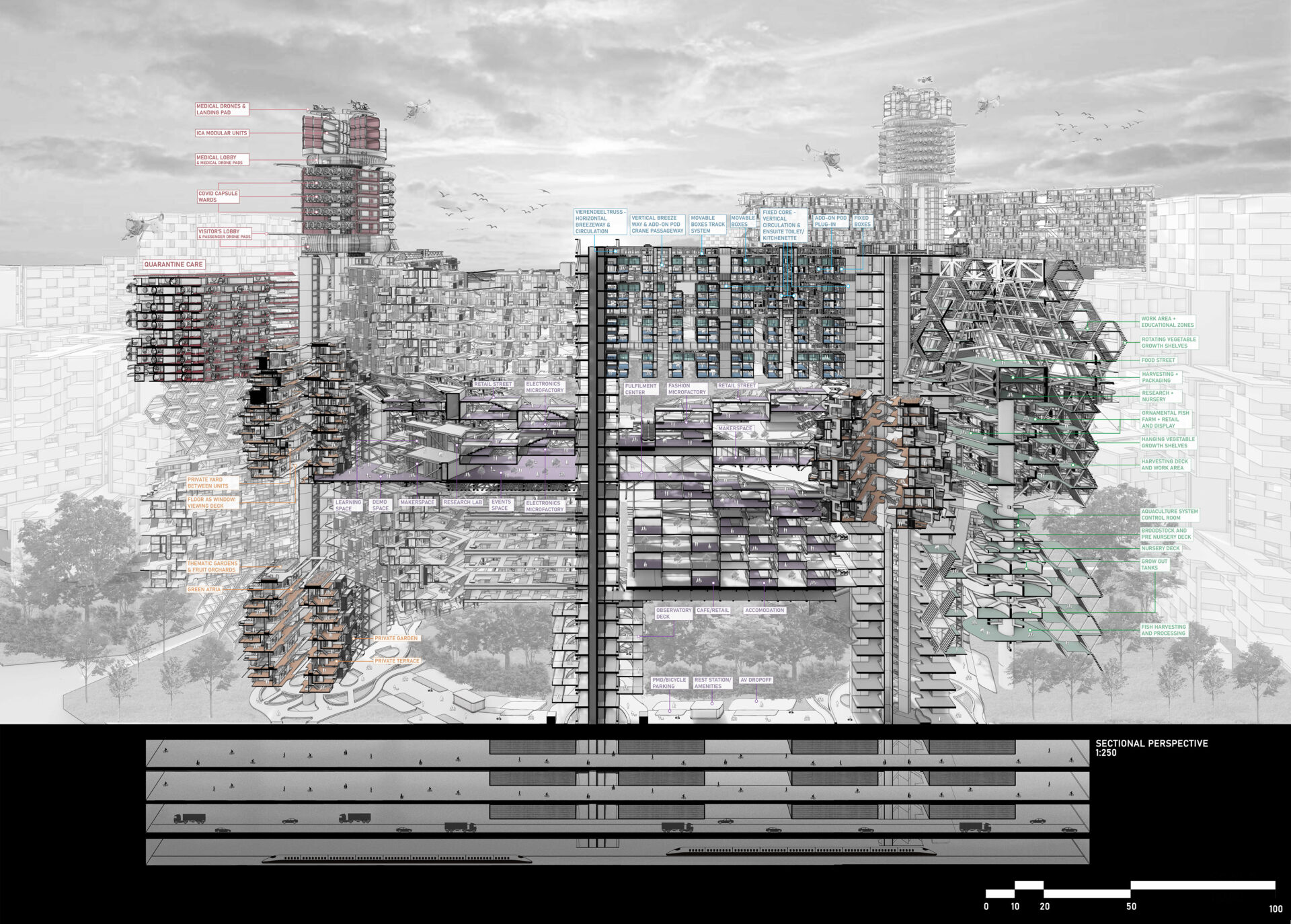
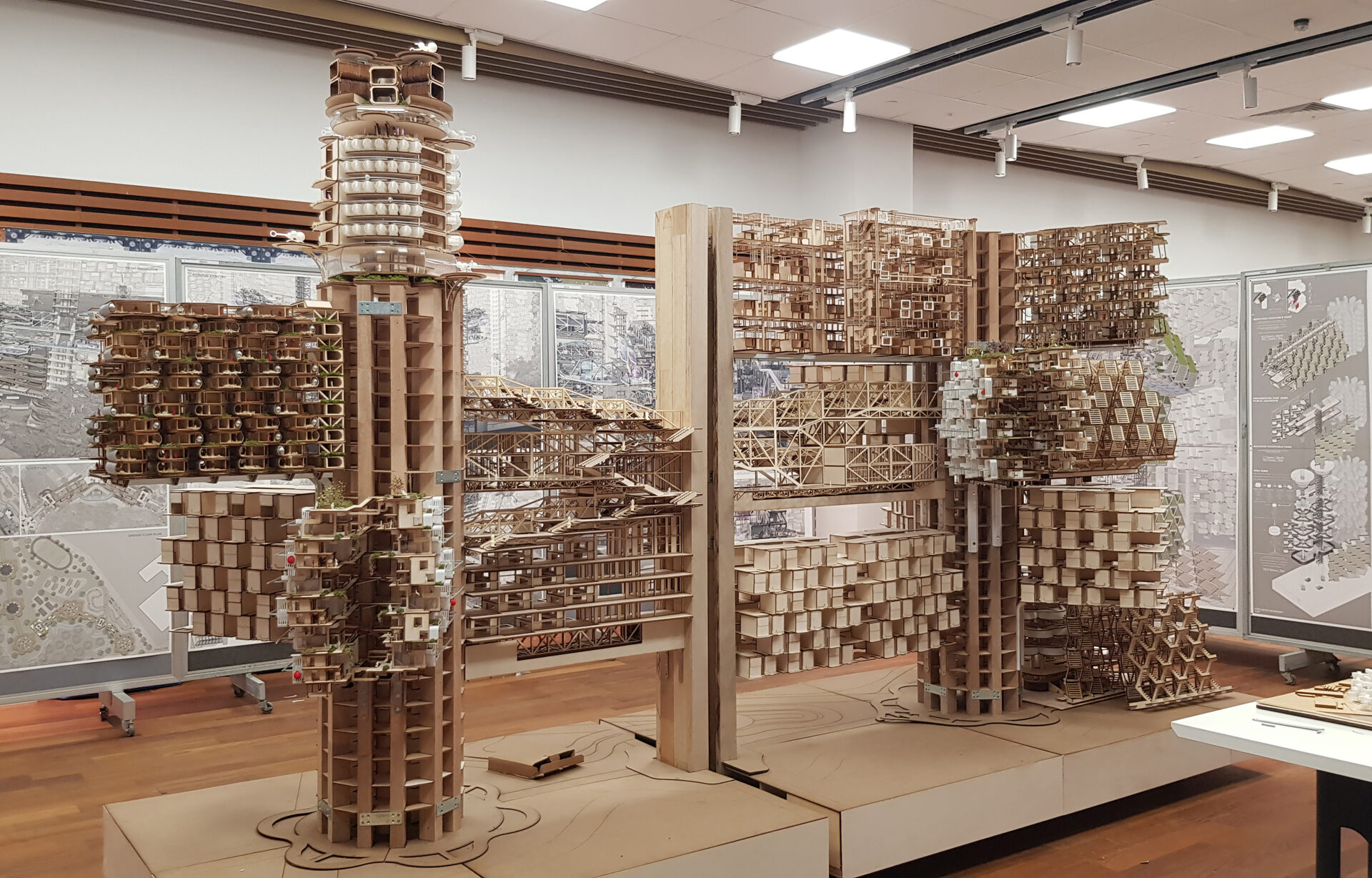
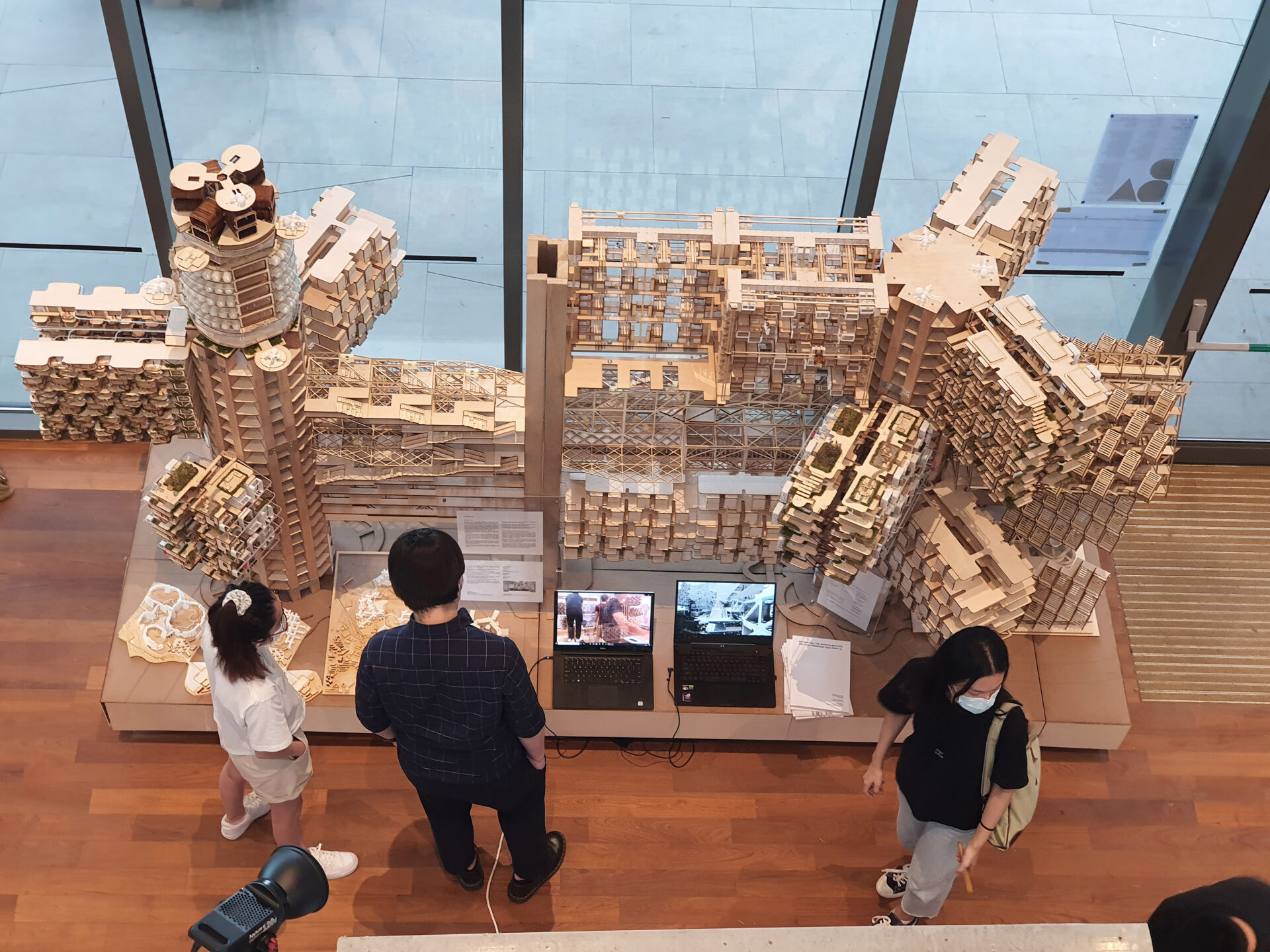
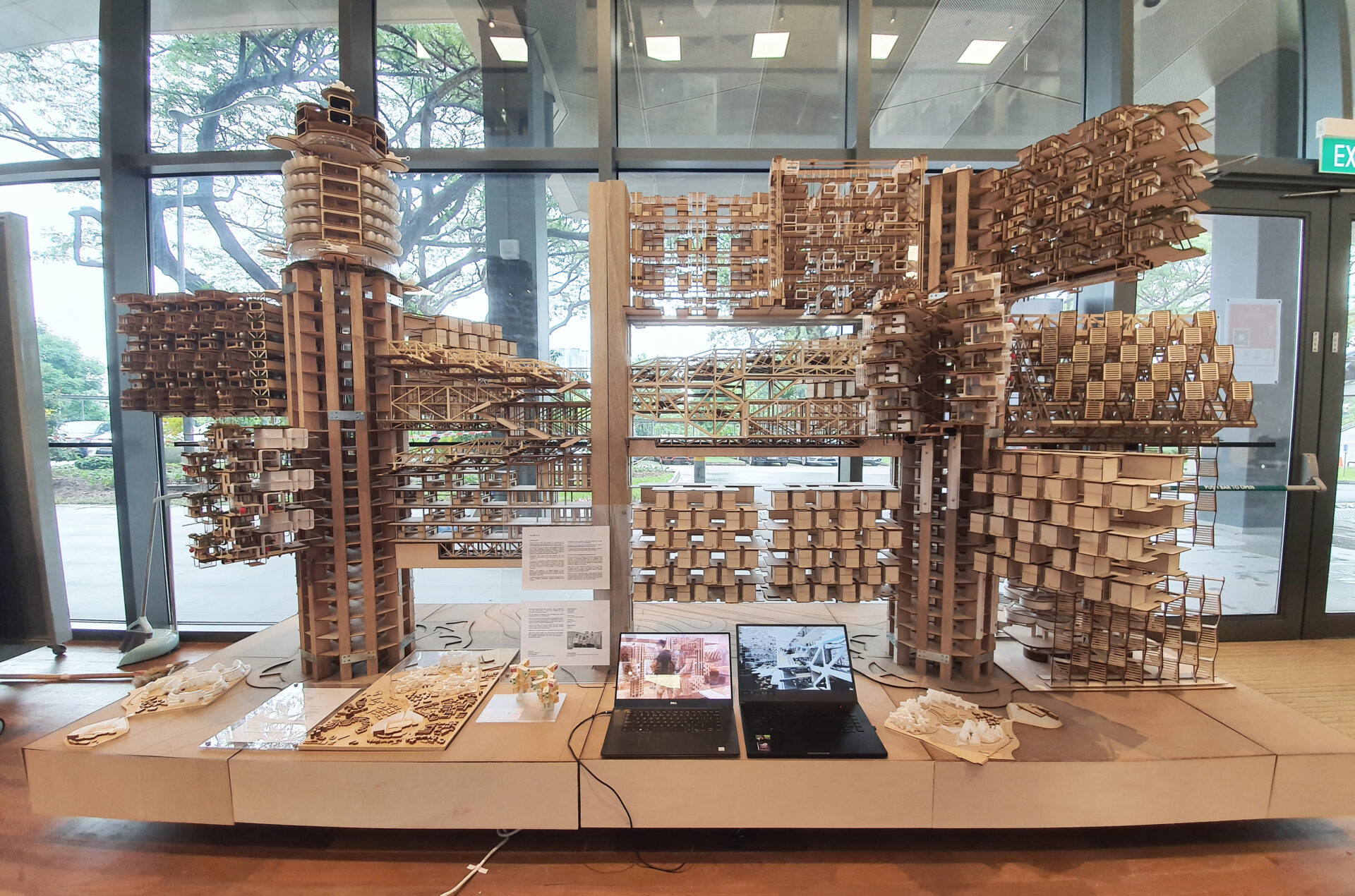

Supervisor's comments:
This is one of few group investigations into a pandemic future in the peri-urban context of Woodlands North where the HSR will receive 2000 commuters a day from Malaysia. Because screening is a norm, the containment of at-risk commuters suggests hybrid transport terminal and quarantine/hotel facilities and this starts a chain reaction of rethinking SHN WFH and Lockdowns. A new neighbourhood is conceived to enable life, creative production and recreation without the claustrophobic impositions of incumbent forms of dwellings, quarantines and workplaces. Investigations into how small a self-reliant neighbourhood can subsist without disruption to energy, water and food supply and recover-in-place resulted in novel hybrid urban prototypes planned for containment and recovery. The thesis would not have been possible without a group of five committed individuals in a memorable year.
- Assoc. Prof. Joseph Lim (Dr.)